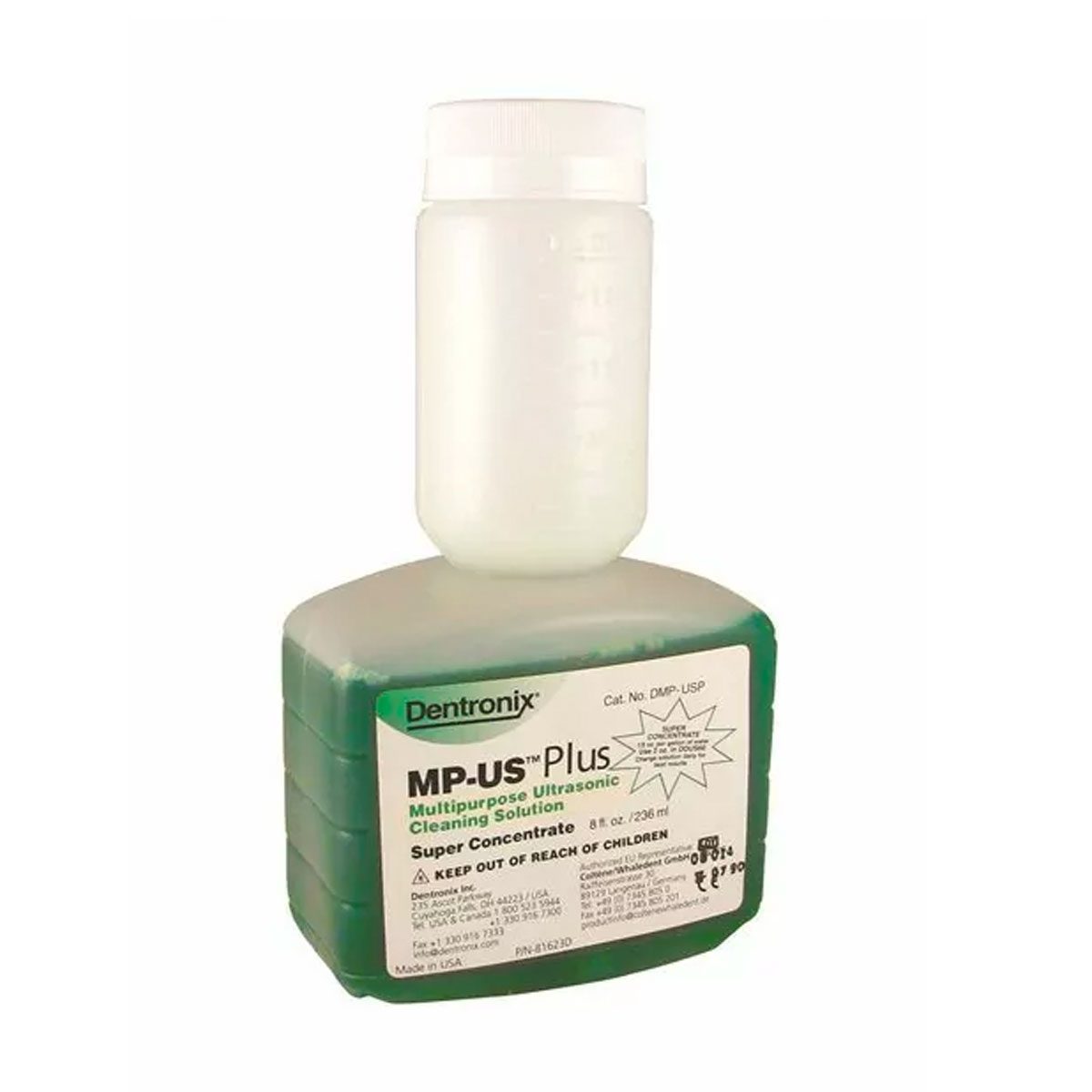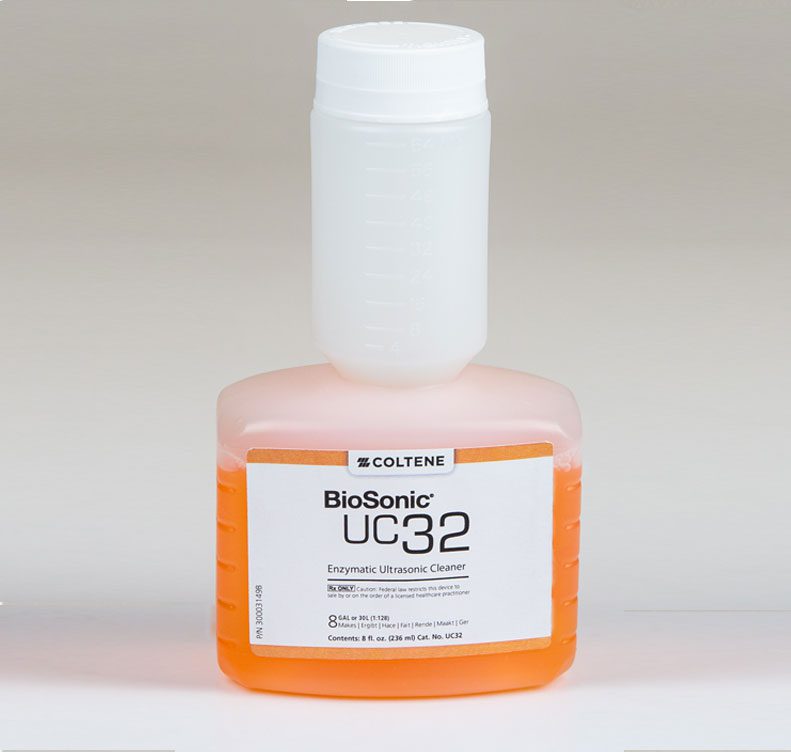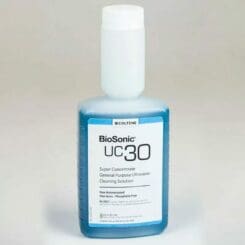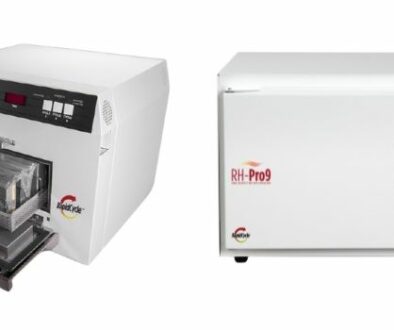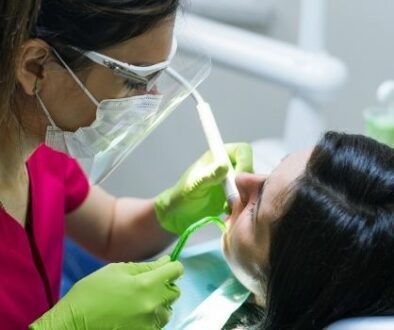Special Care for Hinged Instruments with Inserted Tips
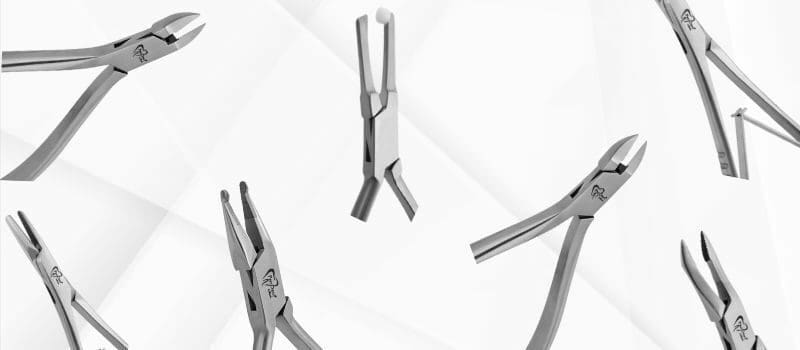
Pro Tips: How to Care for Hinged Dental/Ortho Instruments
You probably know that hinged dental and medical instruments require special care to ensure smooth operation and protect their finish from rusting. But do you know what sterilization equipment and solutions are safe to use on hinged dental instruments?
Make your investment in orthodontic pliers last longer. Learn which sterilization liquids and what types of medical sterilization equipment are best used to protect your hinged orthodontic pliers, hemostats, and wire cutters.
Avoid These Sterilization Solutions on Stainless Steel Instruments
Stainless steel, particularly the martensitic (heat-treatable) grade used to make dental pliers, is corrosion-resistant, but not corrosion-proof. It should not be exposed to the following chemicals:
- Sodium hypochlorite
- Barium
- All chlorides
- Carbolic acid
- Chlorinated lime
- Citric acid
- Lysol
- Mercury salts
- Phenol
- Potassium permanganate
- Potassium thiocyanate
- Sulfuric acid
- Any tartar and stain removers
WARNING: Do not use these products on stainless steel hinged pliers or other hand tools. Liquids for surface disinfection should not be used on instruments either.
Recommended Liquid Sterilization Solutions to Protect Stainless Steel Instruments
The following sterilization liquids do not contain these harmful chemicals and are recommended for use in sterilizing everything from medical pliers to orthodontic wire cutters:
What are Inserted Tips in Orthodontic Pliers?
Because the high-tech materials used in treating patients (most notably wires, brackets, and adhesives) are harder than the stainless steel from which instruments are made, orthodontic pliers are often inserted with a separate, harder material in the tips. This is what it means to have “inserted tips.”
Tips are bonded to pliers with a brazing/silver soldering alloy containing up to 50% silver.
Should hinged instruments be autoclaved?
When To Use Dry Heat vs Autoclave Sterilizers for Orthodontic Pliers
ProDent Pliers (A replacement option for Dentronix’s “Classic” instruments)
Autoclaving is the recommended sterilization method for most ProDent instruments, including the Siberian Stone™ Pliers. Remember to always use distilled water in your sterilizer to ensure proper sterilization. This will also help reduce staining.
For complete information on the best and most effective sterilization techniques for ProDent products, you can refer to this useful sterilization guide.
PlyDentCo Pliers (a replacement for Dentronix “Royal” line of instruments)
PlyDentCo Pliers can be sterilized via steam autoclave, dry heat, unsaturated chemical vapor (chemiclave), or ethylene oxide methods. When cleaning or disinfecting, avoid phosphates, enzymes, and solutions that are acidic. Acidy dissolves the binder in carbides.
The most important aspect to remember when caring for your hinged instruments is to carefully follow all the manufacturer’s instructions.
Tips on Using Sterilization Equipment for Hinged Instruments
- Steam sterilization of pliers must be performed with a pre-vacuum/Class B sterilizer. Gravity sterilizers are not appropriate for these types of hinged instruments.
- Always sterilize hinged instruments in the open position with tips not touching.
- Steam sterilization causes dulling of sharp edges, corrosion of ferrous materials, and degradation of hinged joints. Expect increased maintenance and more frequent replacements when repeatedly using steam sterilization procedures.
- Load and operate sterilizers according to the manufacturer’s instructions and biologically monitor sterilization equipment in accordance with regional standards and regulations.
- Washer/disinfectors are not recommended due to the highly acidic and alkaline nature of the cleaning solutions. Their effects on instruments manufactured with multiple metals can cause rusting.
Best Practices for Sterilizing Orthodontic Pliers
- Orthodontic pliers, regardless of the tip material, should be cleaned before sterilization using an ultrasonic cleaning machine or by hand using a non-enzymatic, phosphate-free, chemically neutral solution with an effective rust inhibitor.
- After cleaning, plain water should not be allowed to settle on the instrument tips or in the joints for periods greater than a few minutes.
- Properly Lubricate Instruments after every processing procedure. Note: petroleum-based lubricants are contraindicated because of toxicity. Products like WD-40 can carbonize when dry heat sterilized and make hinges stiffer when used with dry heat sterilization. Use a food-grade pure silicon product to lubricate joints and displace trapped moisture.
Top Brands of Orthodontic & Dental Hinged Instruments
PlyDentCo: Manufactures tungsten carbide-inserted pliers in the USA. The ultimate replacement for all Dentronix instruments, specifically the Royal Line. Search above for the exact Dentronix replacement item.
ProDent: An innovator in dental and orthodontic instruments manufactured internationally.
Not sure what you need? Chat or call us. We’re in Charleston, SC.
Call or chat with questions about compatibility or when you need a replacement instrument. We understand the importance of choosing the right pliers and taking care of your instruments.

